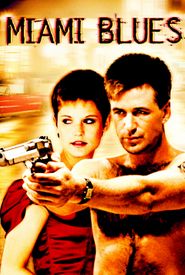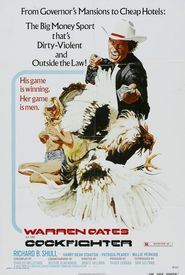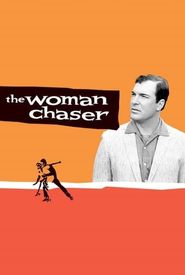Charles Willeford, a writer of extraordinary caliber, left behind a vast and diverse array of literary endeavors, encompassing a wide range of genres, including poetry, crime fiction, and literary criticism, which collectively serve as a testament to his remarkable versatility and seemingly boundless creativity.
Charles Ray Willeford III, a figure of notable distinction, entered the world on January 2, 1919, in the city of Little Rock, Arkansas, an event that would serve as the genesis of a life forever altered by the tragic and untimely demise of his parents, both of whom succumbed to the debilitating and ultimately fatal effects of tuberculosis at a remarkably young age. This untimely loss had a profound impact on Willeford's early years, which were characterized by a series of residential changes, with him spending time in the care of his grandmother, as well as attending various boarding schools, a nomadic existence that would shape his formative years.
Charles Willeford's life trajectory underwent a profound transformation during his early teenage years, marked by a deliberate decision to embark on a hobo lifestyle, thereby eschewing the conventional path and opting instead for a life characterized by freedom and adventure.
As he wandered aimlessly, his restless spirit was eventually tempered by the realization that his carefree existence was unsustainable, leading him to enlist in the Army Air Corps at the tender age of sixteen, thereby demonstrating a sense of responsibility and duty that would come to define his life's journey.
Willeford's early years were marked by a swift ascent through the military ranks, ultimately culminating in his appointment as a tank commander within the esteemed 10th Armored Division, where he played a pivotal role in the European theatre of World War II.
Throughout his tenure, Willeford consistently demonstrated exemplary bravery, as well as exceptional leadership abilities, which earned him widespread recognition and numerous prestigious accolades.
Among his notable honors were the esteemed Silver Star, the Bronze Star, two Purple Hearts, and the Luxembourg Croix de Guerre, a testament to his unwavering dedication to duty and unshakeable courage in the face of adversity.
As a result of his remarkable service, Willeford's name became synonymous with bravery, leadership, and unyielding commitment to the greater good, leaving an indelible mark on the annals of military history.
Following the cessation of hostilities, Willeford remained steadfast in his allegiance to his nation, persisting in his military service until ultimately relinquishing his duties as a Master Sergeant, a triumphant culmination of his unwavering dedication and unshakeable commitment to his country's well-being, serving as a poignant testament to the indelible mark he left on the armed forces.
Charles Willeford's literary odyssey commenced with the publication of his inaugural novel, "High Priest of California", in the year 1953, thus inaugurating a remarkably productive writing period that would subsequently yield a multitude of novels, each one exemplifying his singular storytelling abilities. This initial foray into the realm of fiction was promptly followed by a profusion of other novels, including the intriguing "Pick-Up", the tantalizing "Wild Wives", the captivating "The Woman Chaser", the gripping "Cockfighter", and the thought-provoking "The Burnt Orange Heresy".
Charles Willeford's literary career reached new heights with his series of novels revolving around the lovably hapless Florida homicide detective, Hoke Moseley. This esteemed series, comprising four remarkable novels, namely "Miami Blues", "New Hope for the Dead", "Sideswipe", and "The Way We Die Now", not only further solidified Willeford's reputation as a masterful storyteller but also elevated him to prominent a position within the literary world.
Charles Willeford's remarkable talent for creating complex and captivating characters, as masterfully showcased through his Hoke Moseley series, not only garnered him a devoted following among readers but also secured him a reputation as a literary giant, widely revered by critics and scholars alike, thereby solidifying his status as a pivotal and far-reaching figure in the realm of literature.
Noted American author Charles Willeford's literary prowess extended far beyond his impressive catalog of fiction works. He also demonstrated remarkable skill in the realm of short story anthologies, as exemplified by his notable collection "The Machine in Ward Eleven". This anthology showcased Willeford's versatility as a writer, highlighting his ability to craft compelling and engaging stories across a range of genres and styles.
Willeford's educational journey was a significant aspect of his life, marked by a formative period at Palm Beach Junior College, where he laid the groundwork for his future academic pursuits. Subsequently, he enrolled at the University of Miami, where he took on a teaching role, instructing students in the realm of humanities, a testament to his passion for education.
His academic career continued to flourish at Miami Dade Junior College, where he served as an associate professor, sharing his knowledge and expertise in the fields of philosophy and English, leaving a lasting impact on his students.
In addition to his academic pursuits, Willeford's personal life was marked by three marriages, each experience bringing its own unique joys and challenges.
Furthermore, Willeford's professional endeavors were also notable, as he held the esteemed position of associate editor for "Alfred Hitchcock Mystery Magazine", a testament to his dedication and expertise in the literary world.
Charles Willeford, a renowned and accomplished author, has been fortunate enough to have had not one, nor two, but a total of three of his remarkable literary works adapted into cinematic productions, thus demonstrating his exceptional skill in storytelling and his ability to craft captivating narratives that resonate with audiences.
Notable in his multifaceted career, Willeford's impressive literary endeavors were accompanied by a lesser-known venture into the realm of cinema, where he made a brief yet memorable appearance in the 1977 film "Thunder and Lightning", skillfully assuming the role of a bartender, thus showcasing his remarkable versatility as a creative artist.
Charles Willeford, a renowned American author, left an indelible mark on the literary world with a career that traversed multiple decades. His remarkable writing journey came to a sudden and unexpected halt on March 27, 1988, when he succumbed to a heart attack, a devastating turn of events that cruelly curtailed his life at the tender age of 69, leaving behind a legacy that continues to inspire and captivate readers to this day.






















